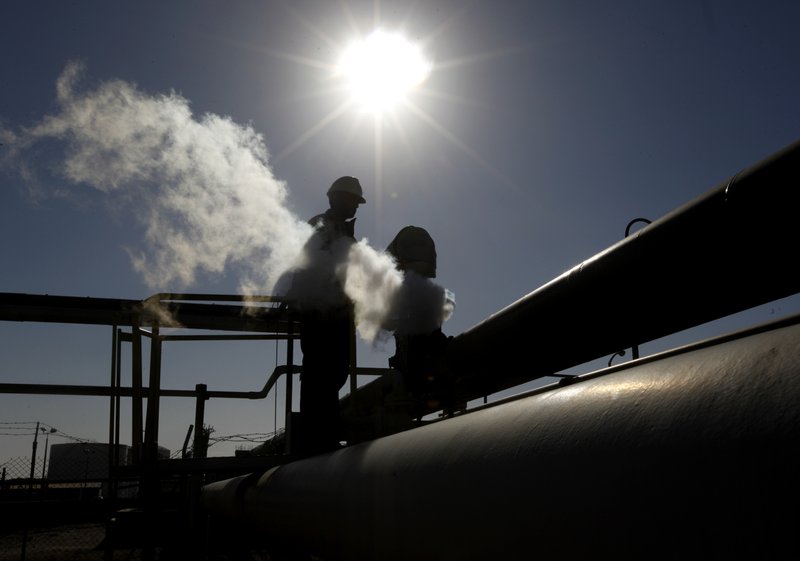
LONDON/TOKYO (Reuters) – Oil prices rose to their highest in more than week on Monday after two large crude production bases in Libya began shutting down amid a military blockade, risking reducing crude flows from the OPEC member to a trickle.
Brent crude LCOc1 was up 41 cents, or 0.6%, at $65.26 by 1116 GMT, having earlier touched $66 a barrel, the highest since Jan. 9.
The West Texas Intermediate CLc1 contract was up 27 cents, or 0.5%, at $58.81 a barrel, after rising to $59.73, the highest since Jan. 10.
Two major oilfields in southwest Libya began shutting down on Sunday after forces loyal to Khalifa Haftar closed a pipeline, potentially cutting national output to a fraction of its normal level, the National Oil Corporation (NOC) said.
The closure, which follows a blockade of major eastern oil ports, risked taking almost all the country’s oil output offline
However, the earlier rise in oil prices eased after some analysts and traders said supply disruptions in Libya will be short-lived and could be offset by other producers, limiting the impact on global markets.
“The oil market remains well supplied with ample stocks and a healthy spare capacity cushion. In other words, the bullish price impact may prove to be fleeting,” said Stephen Brennock of oil broker PVM.
“We expect the current scale of outages to be fairly short-lived … as there is limited upside for Haftar to slow the country’s oil revenues to a trickle,” said Amrita Sen, chief oil analyst at Energy Aspects.
“The current closures are clearly a power play aimed at boosting Haftar’s leverage amid international efforts to broker peace in the country.”
Foreign powers agreed at a summit in Berlin on Sunday to shore up a shaky truce in Libya which has been in turmoil since the fall of Muammar Gaddafi in 2011.
If Libyan exports are halted for any sustained period, storage tanks will fill within days and production will slow to 72,000 barrels per day (bpd), an NOC spokesman said. Libya has been producing around 1.2 million bpd recently.
“A prolonged disruption from Libya would be enough to swing the global oil market from surplus to deficit in 1Q20,” said ING analyst Warren Patterson, referring to the first quarter of 2020.
The EU’s top diplomat Josep Borrell said on Monday the European Union will discuss all ways to uphold a formal ceasefire in Libya but any peace settlement would need real EU support to make it hold.
Market activity was thin on Monday on the Martin Luther King Jr. holiday in the United States.
Reporting by Bozorgmehr Sharafedin in London, Aaron Sheldrick in Tokyo; Editing by Kirsten Donovan and Louise Heavens
Image: In this Feb. 26, 2011 file photo, a Libyan oil worker, works at a refinery inside the Brega oil complex, in Brega, eastern Libya. ON Saturday, Jan. 18, 2020, the National Oil Corporation in Libya says that a decision by east-based forces to choke off oil exports from its territory has threatened to throttle much of the country’s oil production (AP Photo/Hussein Malla, File)




